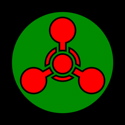On May 9, Her Majesty Queen Beatrix of the Netherlands officially unveiled a Memorial in The Hague for all those who have perished from chemical weapons. The International Day of Remembrance for all Victims of Chemical Weapons falls annually on April 29. This year's date was also the 10th anniversary of the Chemical Weapons Convention (CWC). Governments and security experts used the occasion to laud the CWC as well as suggest ways to improve it. The CWC bans the development, production, acquisition, stockpiling, transfer, and use of chemical weapons (CW). Its provisions are of indefinite duration and apply to all activities potentially related to chemical weapons. The 500-man Organization for the Prohibition of Chemical Weapons (OPCW), based in The Hague, oversees the CWC's implementation by monitoring, through on-site inspections and other means, parties' compliance. In a video message to those attending the unveiling, U.N. Secretary-General Ban Ki-moon effectively identified two of the main problems presently confronting the CWC. Ban called on "those states that have not yet ratified or acceded to the convention to do so without delay" and urged "all possessor states to complete the destruction of their declared stockpiles according to the deadlines."
Chemical Warfare: Commemorating the Past and Moving Ahead

